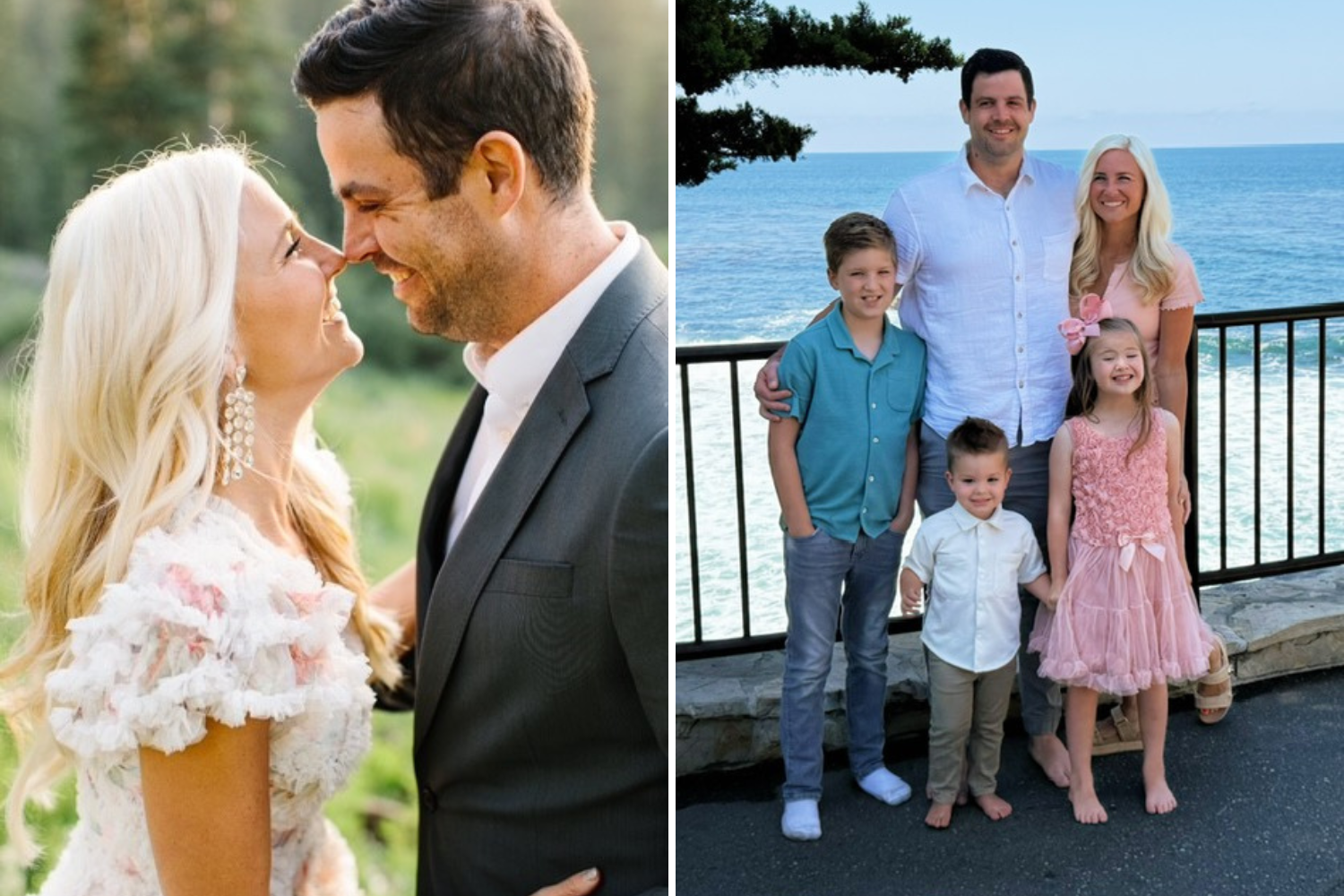By Alice Gibbs
Copyright newsweek

When Steven Suprise first noticed a small black spot in his peripheral vision, he brushed it off. “It wasn’t like floaters,” he told Newsweek. “It was more like when you press on your eye and see a black spot on the other side.”
The Utah father of three thought it might be linked to the tear duct surgery he had undergone years earlier. “I still called an ophthalmologist to get it checked out,” Suprise, 36, said. “But after running tests, they told me: ‘We don’t see anything.’”
Feeling reassured, he carried on with his life, busy with nursing school and raising his family with his wife, Laura. But a year later, something unexpected jolted him into action.
Pictures of Steven and his family. @laura_margaret3/TikTok
A Startling Selfie
“I was at the hospital doing a clinical rotation and I sent my wife a selfie,” he recalled. “That’s when I noticed my eye was kind of drooping—like my eyes looked crooked. That scared me a little bit.”
Unsure what to do next, Suprise decided to try something new. “I put my symptoms into ChatGPT,” he said. “I felt kind of ignored by doctors at first. ChatGPT told me I needed to go back in—and it gave me ammo to say, ‘Hey, this might be something serious.’”
A Shocking Diagnosis
Expecting a routine procedure, Suprise was stunned when he awoke from surgery to hear the words no one wants to hear: cancer.
Doctors later confirmed he had adenoid cystic carcinoma (ACC), a rare and aggressive cancer that affects fewer than one percent of cases like his. “They said it had characteristics of a cyst, but they couldn’t rule out ACC,” Suprise said.
A PET (Positron Emission Tomography) scan showed the cancer had not spread, which was a relief. He underwent 30 rounds of radiation and five rounds of chemotherapy over several weeks.
Pictures of Steven undergoing treatment for the cancer. @laura_margaret3/TikTok
Despite stories like Suprise’s, experts warn that relying on ChatGPT for medical decisions is risky. OpenAI’s own policies stress that its models should not be used to give “tailored advice that requires a license, such as legal or medical advice, without appropriate involvement by a licensed professional.”
Even Sam Altman, CEO of OpenAI, has voiced caution when it comes to using AI to diagnose medical conditions. Speaking at a Washington conference in July 2025, he said: “I really do want a human doctor… Maybe I’m a dinosaur here, but I really do not want to trust my medical fate to ChatGPT with no human doctor in the loop.”
These warnings have been reinforced by research. A physician-led study published in 2025 found that GPT-4o gave unsafe answers to around 13 percent of patient questions.
Some responses, for example, included advice that could delay treatment for a heart attack or put infants at risk.
Sharing His Journey
Throughout treatment, Suprise and his wife have documented their story on TikTok, hoping to spread awareness. “There’s not a lot of information about this cancer,” Suprise said.
“If sharing my story helps even one person feel supported or get answers sooner, then it’s worth it.”
He also joined online support groups for others with ACC, but hopes that by sharing his story he can help more people. “I feel lucky to have strong family and friends around me, but not everyone has that. If I can provide some hope, I will,” he said.
Hope For The Future
Now finished with his treatment, Suprise is waiting for follow-up scans to confirm whether it was successful. Despite the uncertainty, his outlook remains positive.
“It’s important to keep going, no matter what you’re going through,” he said. “I still have goals, and I still want to accomplish them.”
As for ChatGPT, Suprise said that it can be a valuable tool—but with caution. “Don’t use it as a final answer, but it can help guide you. I even think doctors should use it. Maybe if mine had, they would have ordered an MRI sooner,” he said.
Do you have a tip on a health story that Newsweek should be covering? Do you have a question about adenoid cystic carcinoma? Let us know via health@newsweek.com.
Draelos, R. L., Afreen, S., Blasko, B., Brazile, T. L., Chase, N., Desai, D. P., Evert, J., Gardner, H. L., Herrmann, L., House, A. V., Kass, S., Kavan, M., Khemani, K., Koire, A., McDonald, L. M., Rabeeah, Z., & Shah, A. (2025). Large language models provide unsafe answers to patient-posed medical questions (No. arXiv:2507.18905). arXiv. https://doi.org/10.48550/arXiv.2507.18905